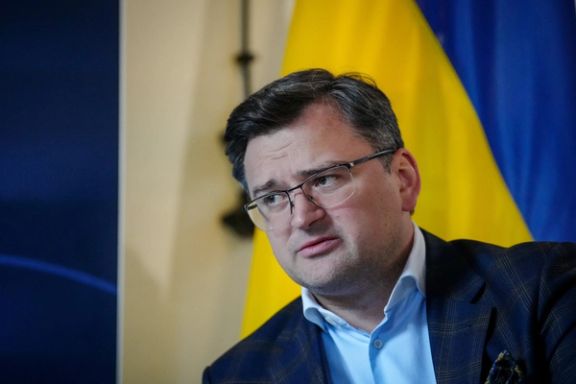Iran’s Foreign Minister Calls Kyiv, Refers To Russian ‘Attack’

Fars News highlighted Friday a phone conversation between Iranian Foreign Minister Hossein Amir-Abdollahian and his Ukrainian counterpart Dymytro Kuleba.

Fars News highlighted Friday a phone conversation between Iranian Foreign Minister Hossein Amir-Abdollahian and his Ukrainian counterpart Dymytro Kuleba.
In a long piece, the agency used the term “attack” for Russia’s intervention in Ukraine, rather than referring to a “crisis” as state-owned media has generally done. Fars also stressed Amir-Abdollahian had dismissed Monday’s claim from United States National Security Adviser Jake Sullivan that Tehran was preparing to send drones, some armed, to Moscow to help its military effort.
UPDATE - Later, the White House released satellite photos and information that Russian military officials visited an Iranian drone base in Kerman to review military UAVs.
This was the fourth phone conversation between the two men, Fars explained, during the crisis, the first before hostilities began in February and three since then.
The agency suggested Amir-Abdollahian had played a mediating role conveying messages between the two sides, including during his trip to Moscow in mid-March and at the meeting of Afghanistan’s neighbors in China, which was March 30-31.
In Friday’s call, Fars reported, Amir-Abdollahian expressed “opposition to Russia’s attack on Ukraine” and reiterated that Iran had “tried to stop this war” and facilitate diplomacy between the two sides. This was in line, the foreign minister had explained, with Iran’s opposition to wars in Afghanistan, Yemen and Palestine.
The foreign minister pointed out that Sullivan’s claims about drones had coincided with “Biden’s trip to occupied Palestine” and said they had been made “simply for political ends.” Fars noted that Iran’s foreign ministry had already stated that while Tehran had “different areas of cooperation with Russia, including defense,” it would take military side and had also made clear its belief that the war in Ukraine should end with a ceasefire.
‘Nato tools,’ grain supplies
Fars also noted the interests of arms producers in “some western countries, trying to sell products,” and reminded readers that at his joint press conference in Tehran June 22-3 with Russian foreign minister Sergei Lavrov Amir-Abdollahian had condemned the US “using Nato tools” as one of the roots of the conflict, a reference to the alliance’s expansion in eastern Europe since 1999.
While Iran has far more imports from Russia than from Ukraine, like many other countries it is feeling the inflationary pinch of disruption in supplies. Iranian Oil Minister Javad Owji told the semi-official Iranian news agency the Young Journalists Club in May that Iran expected to import 5 million tonnes of grain, including some wheat, from Russia in the Iranian year ending March 2023. Tehran’s domestic wheat production is being hampered by low rainfall.
It was also noteworthy that Fars made no mention of the disputween the two countries over the Ukrainian airliner shot down in 2020 over Tehran by two missiles fired by the IRGC. Ukrain had been pursuing the case for a full accounting by Tehran and compensation before the Russian invasion.
An early end to the Ukraine war would not only ease pressure on the Iranian economy but placate those Iranians who have taken up the Ukrainian case, with some gathering outside the Russian embassy in Tehran back in February to chant “death to Putin.” The conservative Jomhouri Eslami newspaper has been firm in backing Ukraine’s cause and condemning Moscow.